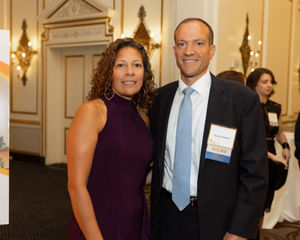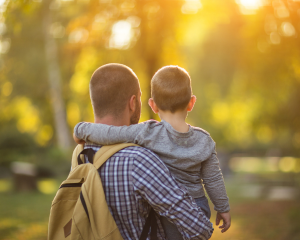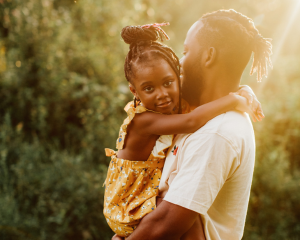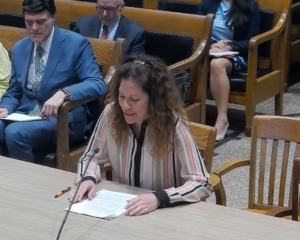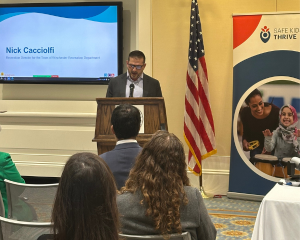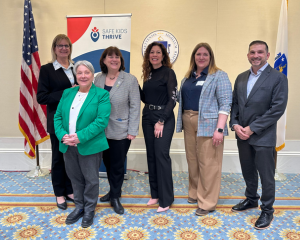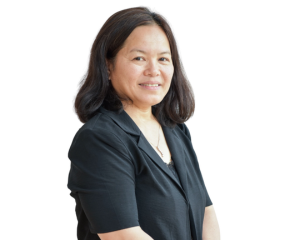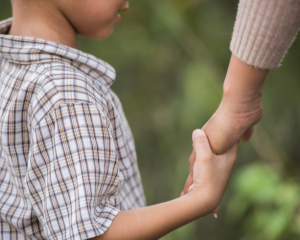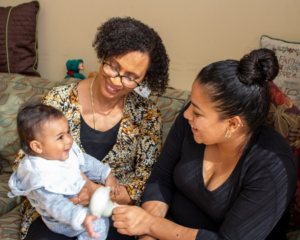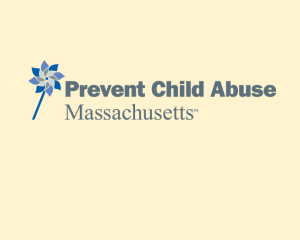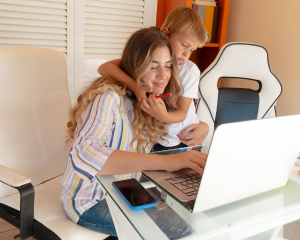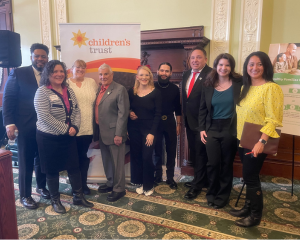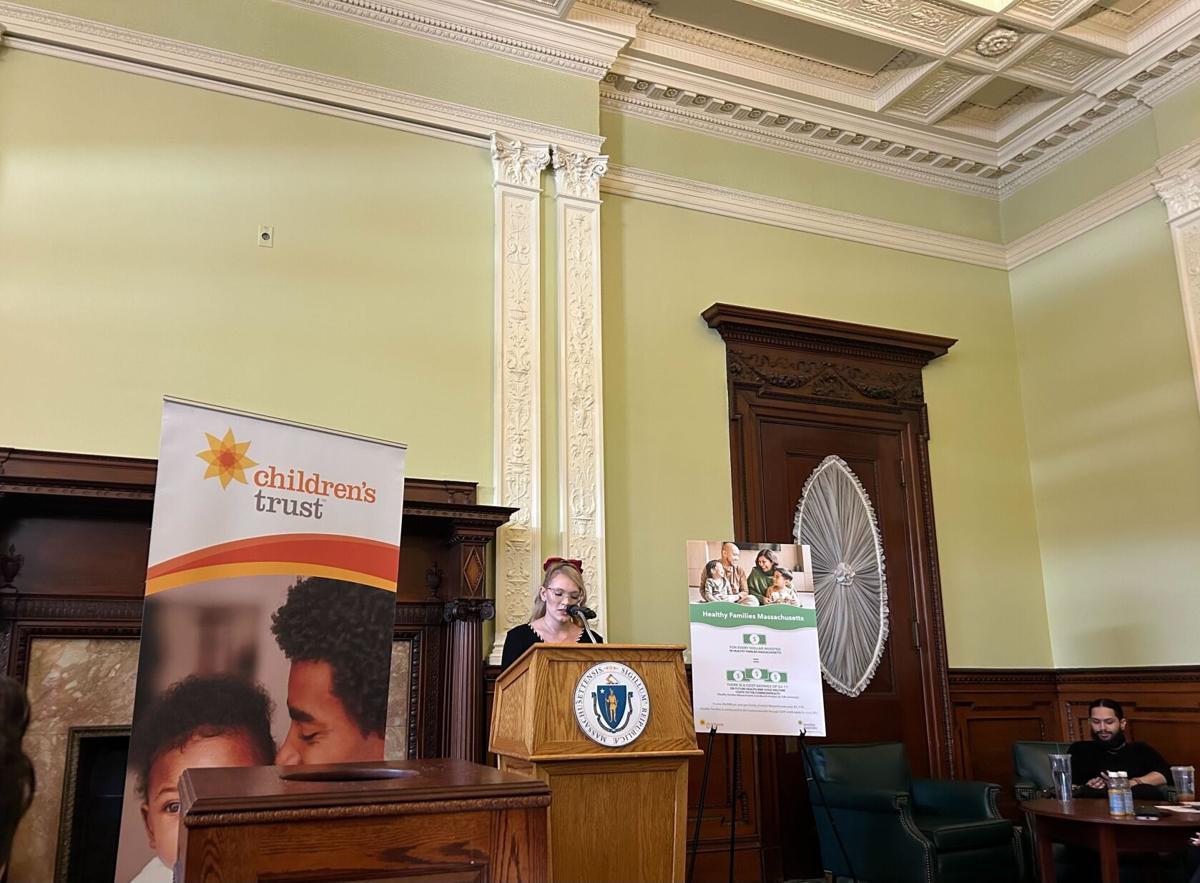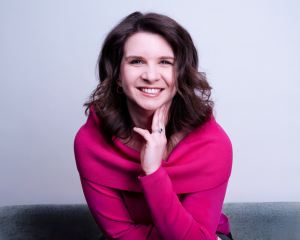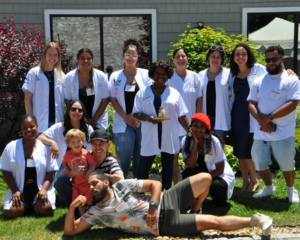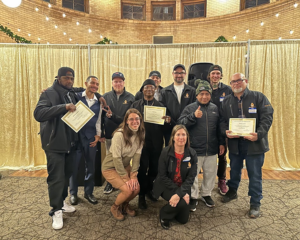This content was produced by Boston Globe Media's Studio/B in collaboration with Safe Kids Thrive. Originally featured on The Boston Globe.
When Joan Lovely was six years old, her uncle came to live with her family in their modest three-bedroom ranch in Beverly. He took the little girl out for ice cream and on fishing trips. Within weeks, he also began sexually abusing her. The abuse continued for a year until she told her mother about it.
Lovely suffered from stomach aches throughout childhood and from anxiety as a young adult. She tried to block the memories, but never forgot them. When she was 35 and her daughter turned 6 years old, a “tsunami” of memories flooded over her, she recalls. There was no specific trigger – just seeing her daughter at age 6 was enough to bring it all back. “I felt like I was drowning. It was like it was yesterday and I was that child again,” Lovely says. She sought help from a therapist.
Now known as Massachusetts State Senator Joan Lovely (D-Second Essex), she has learned to manage the long-term effects of child sexual abuse and became a passionate advocate for prevention. Combatting sexual abuse is a significant challenge. Roughly one in four girls and one in 13 boys endure sexual abuse in the United States, according to the Centers for Disease Control and Prevention. More than 90 percent of the time, the abuser is not a stranger, but someone who the child or family trusts. Those trusted people include relatives, family friends, clergy, coaches, teachers, and people who work in organizations with children’s programming.
Psychologists and other experts have identified ways to help prevent child sexual abuse before it starts. They’ve also pinpointed warning signs of abuse so it can be halted.
This guidance is now available from Safe Kids Thrive, a resource developed by the Massachusetts Legislative Task Force on the Prevention of Child Sexual Abuse, a collaboration of almost 30 public and private youth-serving agencies, offices, and organizations from across the Commonwealth. It offers a comprehensive website and free toolkit for organizations serving youth, parents, and other adults, plus custom training for organizations, from after-school programs to dance schools.
The Legislative Task Force, co-chaired by the Children’s Trust and the Office of the Child Advocate, and other members researched best practices over several years to craft their recommendations. The Legislative Task Force held community forums across the Commonwealth to understand what would be helpful to communities to stop child sexual abuse. Safe Kids Thrive is the result of this research and outreach.
Preventing child sexual abuse

Child sexual abuse is a deeply uncomfortable topic that most people would rather avoid. But once the conversation starts to incorporate ideas to prevent abuse, “that helps move people to this place of action,” says Tammy Bernardi, prevention training coordinator for The Children’s Trust, a statewide organization that works to end child abuse and manages Safe Kids Thrive.
“It is possible to prevent most child sexual abuse,” Bernardi emphasizes. Safe Kids Thrive endorses eight prevention strategies for youth-serving organizations:
- When screening and hiring for staff and volunteers, do background checks along with interviews and calls to references. “You’re letting people know right from the get-go, ‘We’re an organization that values children’s safety,’” Bernardi says.
- Create a code of conduct, and establish policies and procedures, for anyone who has access to children at your organization.
- Monitor adults’ behavior with children in your care. This is a shared responsibility among all staff, volunteers, parents, and caregivers.
- Build a safe environment. Specifics will vary depending on the organization. One guideline is to have staff positioned to create clear sightlines where all interactions are observable.
- Train employees at least once a year on warning signs of abuse, best practices for prevention, and your organization’s code of conduct.
- Sustain your prevention program with regular evaluations of what’s working and areas for improvement. Take action on any areas needing further development.
- Report suspected abuse right away. Be clear about who to contact at your organization with concerns.
Parents and caregivers can ask their child’s after-school program, youth sports league, and other organizations for specifics on their safety protocols, using these points as a guide.
Sometimes problem behavior is unintentional, says Randy Kinnas, chief operating officer for the Alliance of Massachusetts YMCAs and member of the Legislative Task Force.
The YMCA has a rule of three: Any staff member must be with at least two children, or with another adult and a child. If someone walks down a hallway alone with a child, that could be an honest mistake. Staff members are trained to “spotlight the situation, identify the concern, explain why the behavior is a concern, give instructions and alert the management,” Kinnas says.
If it happens again, that pattern warrants investigation.
Signs of sexual abuse in children and warning signs of abusive adults
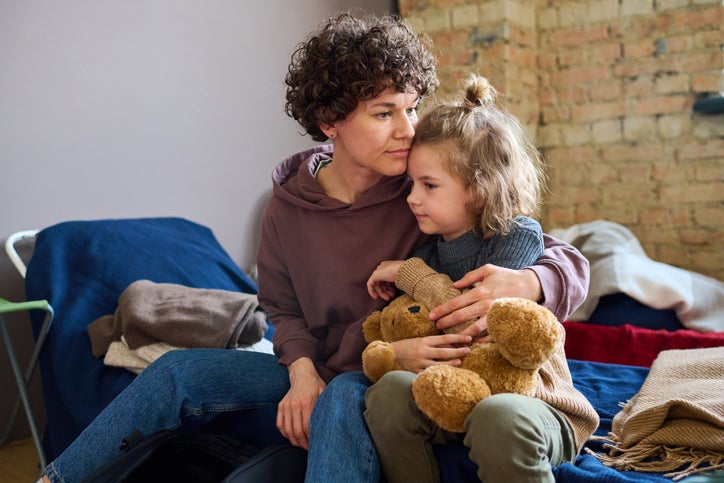
Abused children may demonstrate clear warning signs. A sudden change in behavior, including depression, isolation, excessive crying, being clingy, fear of certain people, or unusual aggressiveness are red flags. Younger children may have stomach issues or sleep poorly, Bernardi says. They may not be as talkative or feel anxious.
As children get a little older, they may have nightmares or express awareness of sexual behavior beyond their years. Some children or pre-teens may try to run away. Parents and caregivers should trust their instinct — if you feel something is wrong, don’t hesitate to talk to your child’s pediatrician or report suspected abuse to the Massachusetts Department of Children and Families (DCF). Always believe your children if they tell you someone is making them uncomfortable or has hurt them.
Staff members of youth serving organizations, parents, caregivers, and bystanders can protect children from abuse by spotting warning signs in adults. An abusive adult may want to spend more and more time alone with one particular child, offering rides, toys, treats, or special permissions unavailable to other children. The adult may ask for a child to sit on their lap, or frequently touch the child. The goal for the abuser is to break down barriers and build trust before the abuse occurs.
As always, parents and other loved ones should talk with their children from a young age about body boundaries and safety. Rather than a “one-and-done” conversation, plan to revisit the topic as the child gets older.
If you suspect child sexual abuse, call 911 for any child in immediate danger. You can also report it to the area office of the Massachusetts DCF where the child lives or call the Child-at-Risk hotline, (800) 792-5200, on nights, weekends, and holidays.
How is your organization doing? Take the quiz
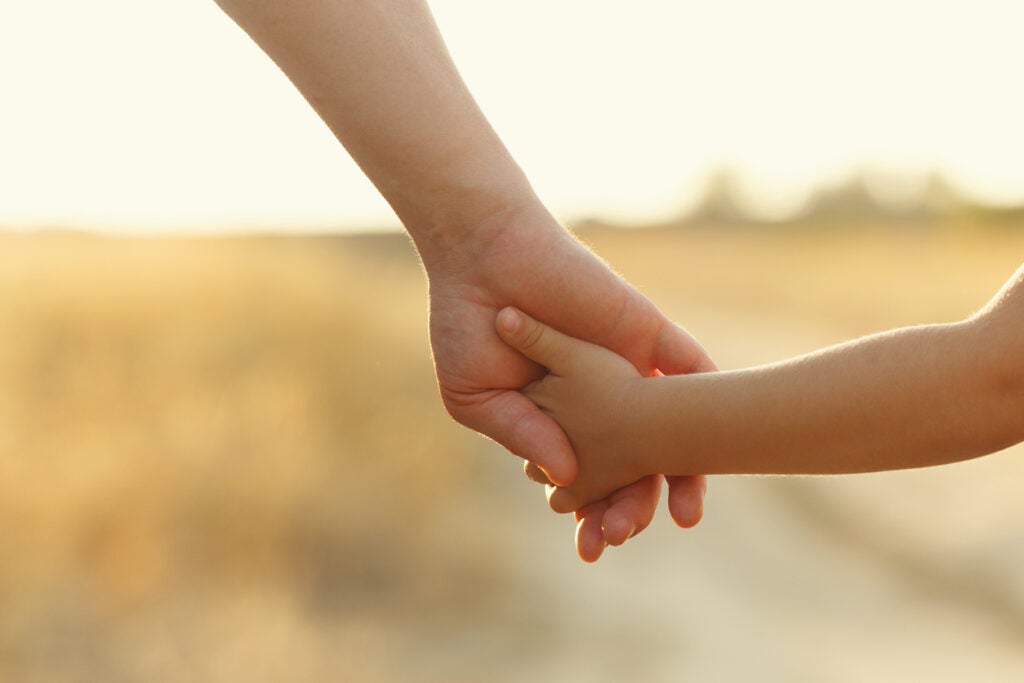
The average age for a survivor to report child sexual abuse is late 40s or early 50s, Lovely says. “That’s when someone feels the courage to come forward.” She has filed two bills to remove the statute of limitations for both civil and criminal cases.
Within 10 years, Lovely hopes there will be universal training against child sexual abuse for anyone who works with children. She wants to decrease the number of cases through prevention, while creating an atmosphere in which more survivors will feel supported to speak out.
You and your organization can help bring those advancements to fruition. Take Safe Kids Thrive’s five-question assessment to gauge the strength of your organization’s efforts to protect children in your care. The Task Force also encourages parents to ask authorities at child-care centers, schools, after-school programs, camps, and anywhere else they send their children if they have a prevention plan for child sexual abuse in place. With actionable advice, Safe Kids Thrive endeavors to educate and empower organizations, parents, caregivers, and everyone who loves a child. They guide society towards a more nurturing, supportive future in which children aren’t left vulnerable to abuse.





